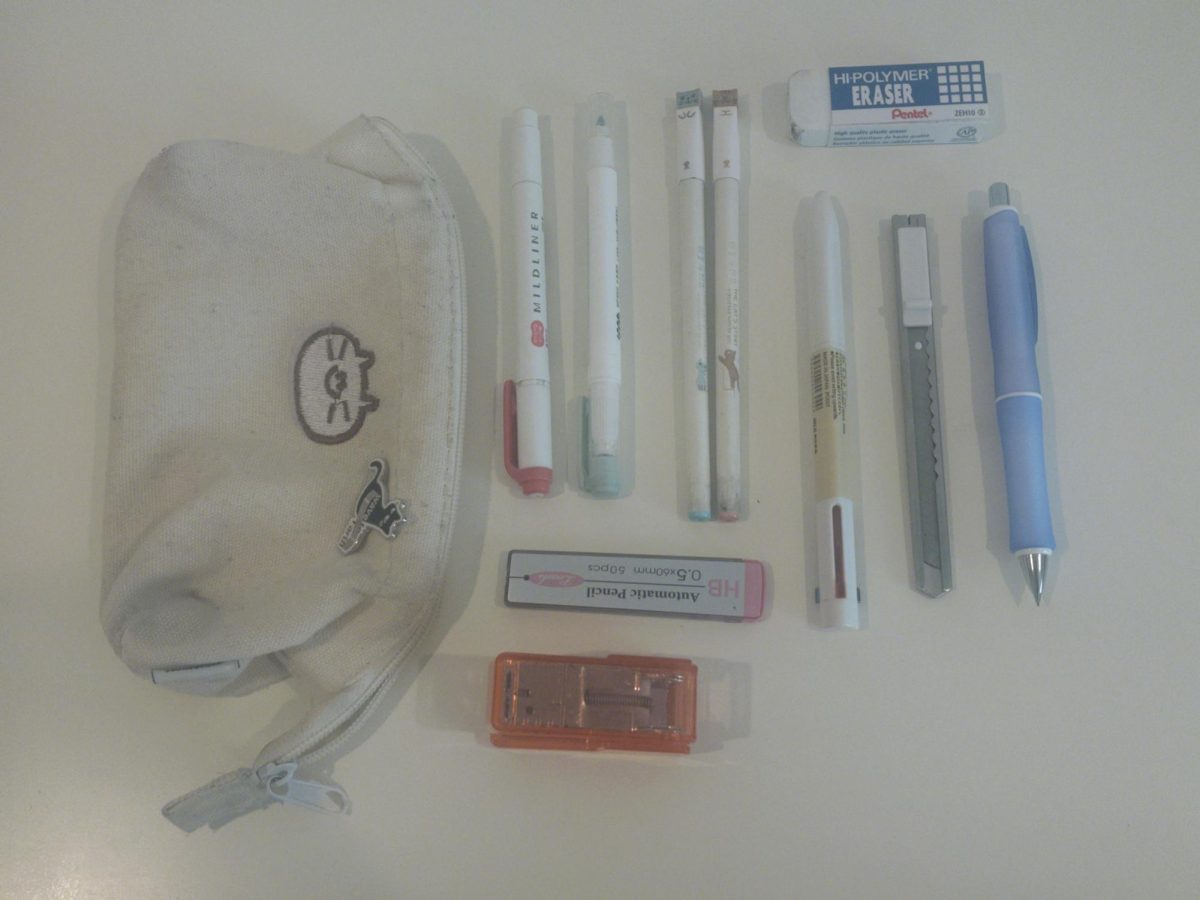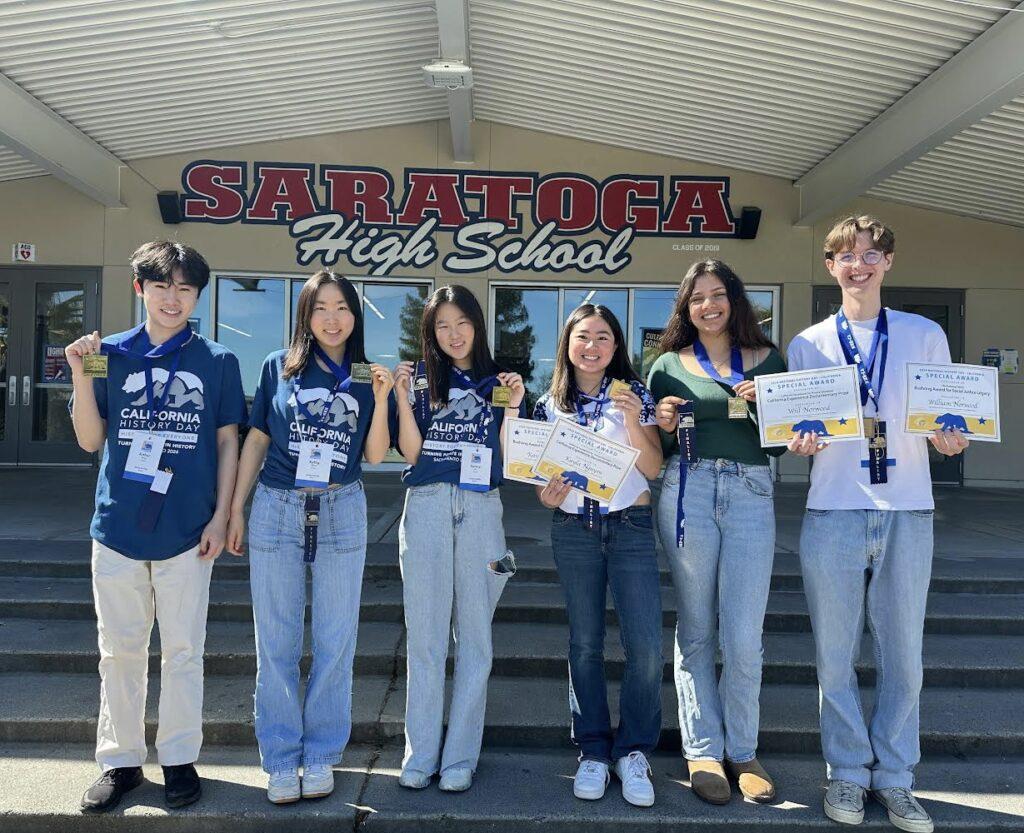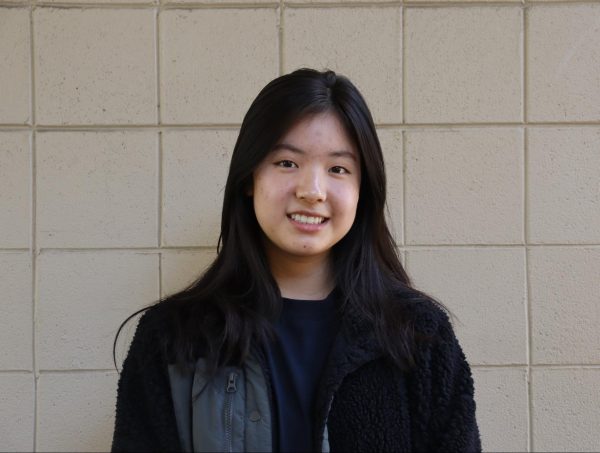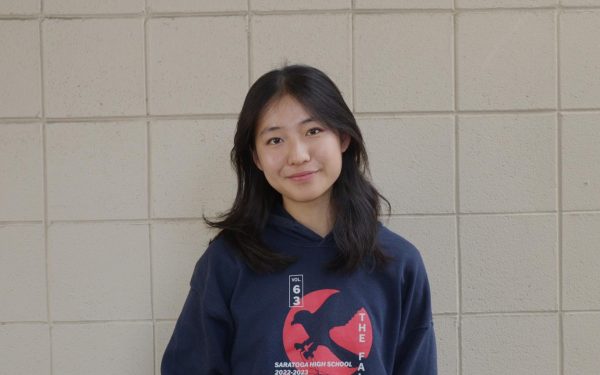The National History Day (NHD) competition is an annual, national contest that 56% of students this year in AP U.S. History (APUSH) classes participated in this year, They built life-size exhibits, recording podcasts, staging performances, recording documentaries and more to communicate a well-researched historical argument in response to each year’s theme, “Turning Points in History” — how an event or movement left an irreplicable impact on any part of the world.
Of the 22 groups selected by APUSH teachers Faith Stackhouse Daly to attend the Santa Clara County competition on March 10, 13 qualified to the state competition in Sacramento from April 19-21. From there, two groups advanced to the national competition in Maryland on June 9-13.
State winning project: Health care reformer Dorothea Dix
Sunny Cao, Arthur Wang and Kathy Wang created a 6-foot tall exhibit titled “Echoes of Ethics: Dorothea Dix’s Reform of Mental Health,” detailing Dix’s work in mental health in the early 19th century. The exhibit presents how Dix brought awareness to patients with mental disabilities by publishing her observations on the unethical practices of asylums and dispelling stigma around the insane, hence catalyzing further mental health reform.
With a joint interest in health care, the group initially brainstormed topics within the medical industry. After Daly provided them with a list of ideas, the group was particularly interested in Dix and her impact on destigmatizing mental health care.
According to Arthur, research for the project was the most stressful step. It was difficult getting started with such a broad topic, but finding Dix’s memorial statement that she personally submitted to the Massachusetts State Legislature kicked off the research process. The memorial offered both primary observations and other historians’ viewpoints on her work, from which the group was able to expand through additional sources. After their information was all gathered, it was a matter of synthesizing everything together into a 6-foot poster board.
“Since we put in so much time and hard work into the exhibit, it gave us confidence,” Arthur said. “It was a little intimidating seeing other exhibits, but I was still feeling pretty certain that we would win. I’m glad our hard work paid off in the end.”
After advancing to Nationals, the group hopes to address two main weaknesses that surfaced during States: the unstable stance of the styrofoam board and the lack of attention-grabbing elements for presentation. They will also be researching additional information on the legacy of Dix and her impact in the present day.
“I’m thankful for Mrs. Daly,” Arthur said. “I remember that our first draft was barely even on topic. Everything was off. It was Mrs. Daly who pulled us through with guidance and countless revisions.”
During the judging process, many factors — including the overall quality and depth of research as well as the visuals of the exhibit — were strictly considered. With the hours spent polishing and revising their research, the group was pleasantly surprised to find that a majority of the points earned for their exhibit were largely based on the quality of research as opposed to the physical appearance of the exhibit.
Second winning project: the Black Panther Party’s Free Breakfast Program
Kayla Nguyen, William Norwood and Aarushi Sharma’s documentary titled “Nourishing The Youth of America: The Black Panther Party’s Free Breakfast Program” tells the story of how the Black Panther’s revolutionary breakfast program in the late 20th century marked a turning point in both grassroots and federally funded free meals for school children.
The group began their project in January by searching for and landing on a unique NHD focus: the Black Panther Party. The party was founded and centered in Oakland and despite their use of force and armed self-defense in the fight for African American civil rights, they grew in both membership and prominence.
“The history [of the party] itself is very local, so we thought it would be really cool to focus on something revolutionary in our state, something that started in our backyard,” Sharma said.
Having chosen their general topic, the group identified significant sights for the movement in Oakland and then traveled to them on Jan. 13 in order to learn and record information. There, they visited several historical murals, but the most impactful stop was the Black Panther Party Museum, where a museum curator introduced the group to the Free Breakfast Program.
The three students then continued their research, wrote a script, recorded and found media, created an annotated bibliography and edited their documentary. After qualifying for Nationals, the group focused on refining their documentary’s audio quality, editing and other visual elements. The feedback they received from judges at both the county and state competitions varied from judge to judge, so the group chose to trust their own judgment instead.
Apart from their well-presented historiography in their documentary, Sharma also believes that the group stood out in their interviews by demonstrating their personal connection to the Black Panther Party: Norwood’s rowing coach is in the present-day Black Panther Party and was the first African American woman on her college rowing team.
“The interviews don’t really count towards your grade or anything, but having a good impression is amazing because that might make or break you,” Sharma said.
In preparation for Nationals, the team will be improving upon three main points: their bibliography, “Turning Point” language and an additional interview with current, founding members of the Black Panther Party.
Under the advice of Daly, the group is trading less scholarly sources in their bibliography for more scholarly ones, in preparation for the professional panel of judges at nationals. They will also be adding “Turning Point” language to their documentary script and bibliography annotations to drive home their focus’s connection to this year’s NHD theme.
But most excitingly, on May 2, Sharma interviewed members of the original Black Panther Party: Ned Saturu, Katherine Campbell and Steve McCutchen, who Nguyen connected after emailing the church where the Free Breakfast Program began.
“It was very eye-opening to see that the people who we read about in our history books were still alive and well because we generally think about all these racial injustices as being way in the past,” Sharma said.
She also hopes that the interview will add authenticity to their documentary by allowing the Panthers to express their history directly.
“I think allowing them to have a direct voice is incredibly more impactful for our documentary because there is no possibility of it being lost in translation,” Sharma said. “Our audience can see the party’s true viewpoints directly from the source.”
Regardless of their performance at nationals in June, Sharma and the group have already gained an invaluable shift in their approach to history. She has found that immersing herself in investigating the Black Panther Party Breakfast Program revealed the group’s true motivations and gave her a greater appreciation for today’s society.
“I always thought history was a little bit useless — because: ‘Why would you need to know so much about the past to have a better future?’ But honestly, that’s not the mentality to have,” Sharma said. “[By learning history,] you gain a sense of appreciation for your current society and have a bigger picture of the world as well.”






























